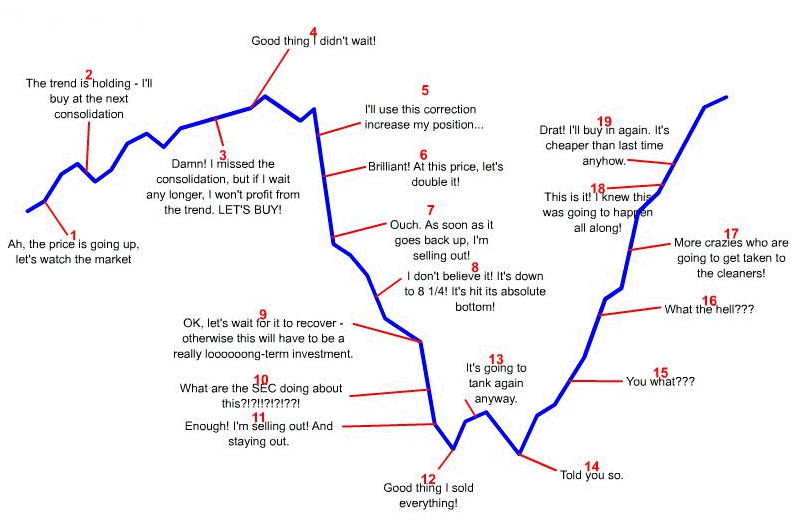Psychological Market Analysis:

Prospect theory explains why investors get it wrong when confronted with certain trading decisions, such as whether to sell out of a position which is now showing a loss. Most people show the greatest reluctance to take losses (...).
This has been catchily described as “get-evenitis” by Hersh Shefrin. This aversion to taking losses is a very powerful instinct. Humans do not seem to view a paper loss as real until it has been crystallised, so we can postpone the painful feeling of losing money. We are also reluctant to admit that we made a mistake with our initial purchase. Selling is an admission of failure.
Conversely, if a position has risen in value we are happy to take profits and sell quickly (...). The main motivation behind selling positions at a small profit appears to be to minimise regret. If the stock fell back after reaching a new high we would castigate ourselves for not taking profits earlier. Selling also confirms that our initial buy decision was correct. We hunger to get that confirmation as quickly as possible.
Both of these effects are at odds with classical financial theory, which says that people’s actions and preferences for risk are unrelated to whether they have made paper profits or losses. In contrast prospect theory says we take more risks in a losing position to get even, but we want less risk when winning, preferring a quick and certain gain to a chance of losing our profits.
i. e. take losses early and let profits run, despite your instinct probably wanting you to do the opposite because it wants to be right eventually